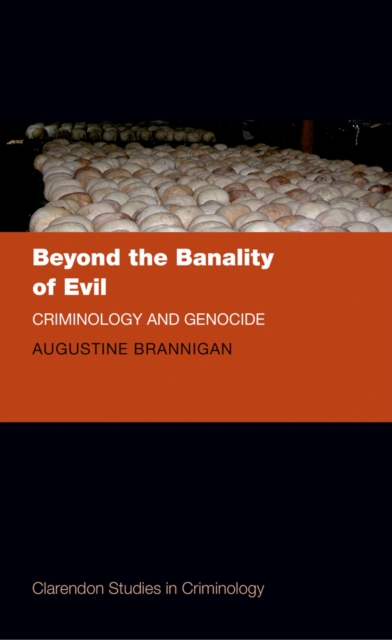
Beyond the Banality of Evil : Criminology and Genocide EPUB
by Augustine Brannigan
Part of the Clarendon Studies in Criminology series
EPUB
Description
Positioning itself within significant developments in genocide studies arising from misgivings about two noteworthy observers, Arendt and Milgram, this book asks what lies 'beyond the banality of evil'? And suggests the answer lies within criminology. Offering the author's reflections about how to interpret genocide as a crime, Beyond the Banality of Evil: Criminology and Genocide endeavours to understand how the theories of criminal motivation might shed light on these stunning events and make them comprehensible.
While a great deal has been written about the shortcomings of the obedience paradigm and 'desk murderers' when discussing the Holocaust, little has been said of what results when investigations are taken beyond theselimitations.
Through examination and analysis of the literature surrounding genocide studies, Brannigan frames the events within a general theoretical approach to crime before applying his own revised model, specifically to Rwanda and drawn from field-work in 2004 and 2005.
This provides a new and compellingaccount of the dynamics of the 1994 genocide and its distinctive attributes of speed, popularity, totality and emotional indifference. With a focus on the disarticulation of personal culpability among ordinary perpetrators, Beyond the Banality of Evil questions the effectiveness of individual-level guilt imputation in these politically based, collectively orchestrated crimes, and raises doubts about the utility of criminal indictments that have evolved in the context of models of individual misconduct.
Information
-
Download - Immediately Available
- Format:EPUB
- Pages:280 pages
- Publisher:OUP Oxford
- Publication Date:21/08/2013
- Category:
- ISBN:9780191662133
Other Formats
- PDF from £58.59
Information
-
Download - Immediately Available
- Format:EPUB
- Pages:280 pages
- Publisher:OUP Oxford
- Publication Date:21/08/2013
- Category:
- ISBN:9780191662133










